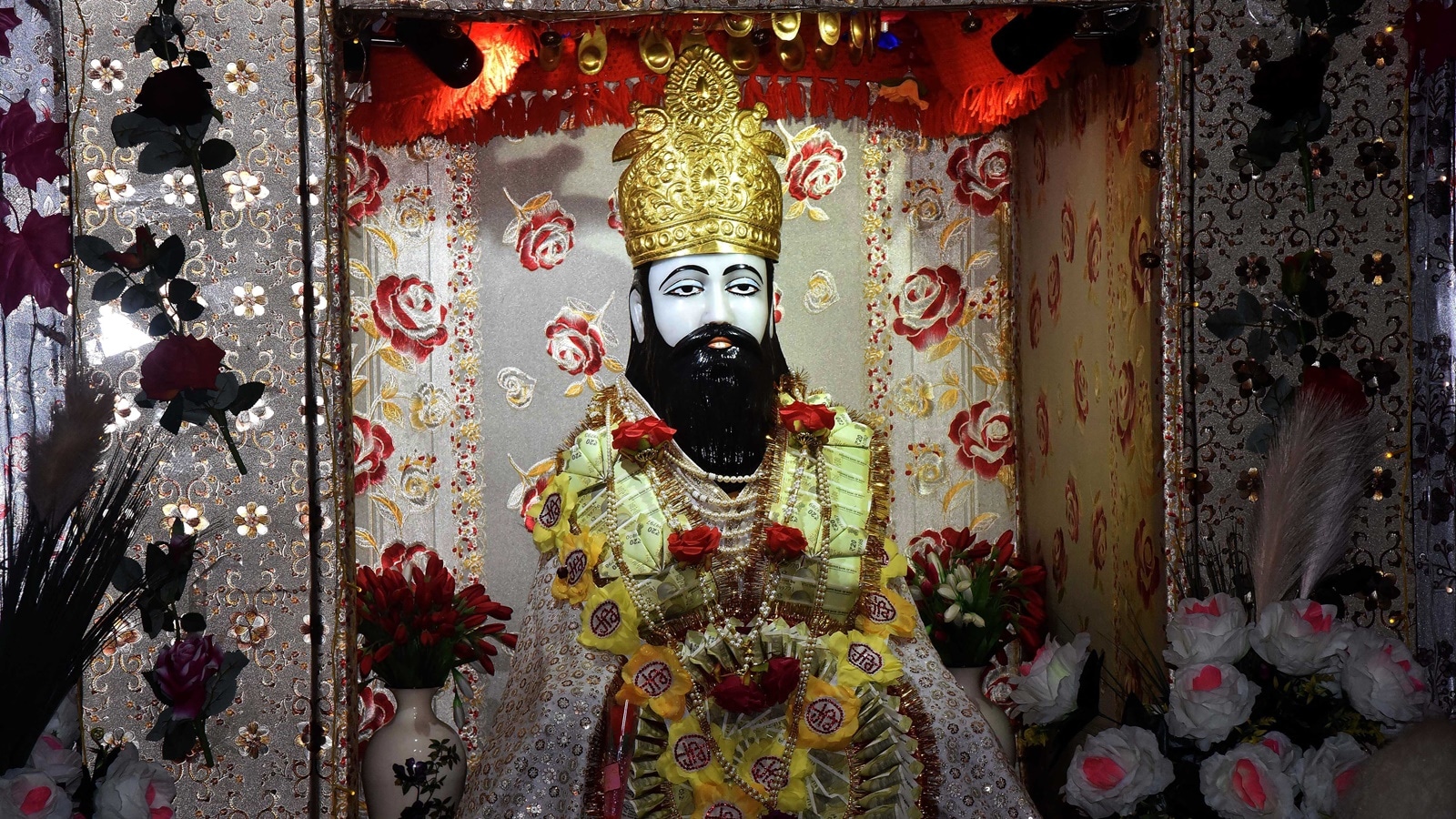Delhi LG Vinai Saxena’s decision to declare Sant Ravidas’s 648th birthday a public holiday is a step ahead for social justice politics. Last year, PM Modi delivered a public address on his birth anniversary and emphasised his role as a social reformer. The 14th-century poet from the chamar (cobbler) caste in Varanasi advocated an egalitarian society promoting equality, dignity, and justice in a caste-ridden country.
Story continues below this ad
Ravidas pioneered socialism, envisioning social justice through his concept of Begumpura (city without sorrow), long before the global socialist movement gained traction in the post-Marxian era. His teachings inspired leaders like B R Ambedkar, Ram Manohar Lohia, and Kanshi Ram who aimed to abolish the caste system, and furthered his vision of economic equality and social justice.
Begumpura’s Utopia
Ravidas extrapolated the concept of Begumpura through many couplets. For him, Begumpura is a city devoid of suffering: “Begampura Sahar ko naao, dukhu-andoohu nahi tahi thaao”. In his imagination, everyone in this utopic world considers themselves as a part of a family. In this prosperous place, all are equal. “Ravidas, the liberated cobbler, declares: Those who dwell here are my friends.”
His dream of an egalitarian society is encapsulated in this verse: “Aisa chahun raj main, jahan mile saban ko ann, Chhot-bado sab sam base, Raidas rahe prasann” (I desire a kingdom where everyone gets food, where poor and rich live together in harmony, and Ravidas remains happy.) His teachings of humbleness and simplicity in life give a call for introspection. In a consumption-driven world where the meaning of life is tied to its symbolic value, his words give us crucial lessons. “Main rukhi-sukhi khaaun, auran ki bhookh mitaun. Koi pairon na dukhi paasa, sab sukhi base Raidaasa” (I eat simple, dry food, but I strive to satisfy the hunger of others. May no one’s feet stumble in pain; may everyone live happily, says Ravidas)
Story continues below this ad
The words of Ravidas strongly align with socialist principles, which emphasise economic equality, collective welfare, and compassion for the underprivileged. He also captures the complex power relations in society and questions subjugation. “Paradhinata paap hai, jaan lehu re meet. Raidas daas paradhin saun, kaun karaihai preet”. (Subjugation is a sin; understand this, my friend. No one loves those who are subjugated)
He adds, “Parādhīn kā dīn kyā, parādhīn bedīn. Raidas parādhīn ko sab hī samajh hīn.” (What faith does the slave have? Slavery is seen as faithless. Oh Ravidas! Everyone considers the slavery as insignificant)
Both Ravidas and Marx advocated for a society without exploitative structures. Marx envisioned a classless, stateless society with equal status for all, while Ravidas’s Begumpura imagined a utopia free of hierarchy. Marx viewed capitalism as the oppressor, Ravidas found the evil in the caste system.
Ravidas’s legacy: Ambedkar and Kanshi Ram
Ravidas was spiritual and poetic; Ambedkar was centred on constitutional reform. Both fought against caste-based oppression to create an egalitarian society. In Ambedkar’s words, “Political democracy cannot last unless there lies at the base of it social democracy, which means a way of life that recognises liberty, equality, and fraternity.” Ambedkar’s vision of social democracy is the modern, realistic version of Ravidas’s Begumpura.
Begampura’s spiritual and poetic essence found a practical shape in Ambedkar, who used the law to dismantle caste oppression, ensuring economic and political rights for Dalits and marginalised groups. Ambedkar also dedicated his book The Untouchables to Ravidas, along with Nandnar and Chokhamela.
Kanshi Ram, the founder of the Bahujan Samaj Party (BSP), aimed to uplift the marginalised community. Originally from Punjab, he also belongs to the cobbler caste of Ravidas. His politics was centred in Uttar Pradesh, the birthplace of the Sant.
most read
Following the path of Ravidas, he believed that wealth and resources should be redistributed to achieve economic justice. His famous slogan, “Jiski jitni sankhya bhari, utni uski hissedari” emphasises proportional representation, while “Jo zameen sarkari hai, woh zameen hamari hai”, asserts rightful ownership of government land. Kanshi Ram also renovated Ravidas’s temple in 1995. His slogan, “Vote se lenge CM-PM, Aarakshan se SP-DM,” captures his belief in using votes and reservations to secure opportunities for the marginalised.
In modern India, where caste discrimination and economic inequalities shape the polity, Ravidas’s teachings remain highly relevant. His Begumpura could be considered a model for an alternative imagination where the marginalised could find an emancipatory space beyond everyday oppression and vulnerabilities.
The writer is a PhD research scholar at Tata Institute of Social Sciences, Mumbai.


